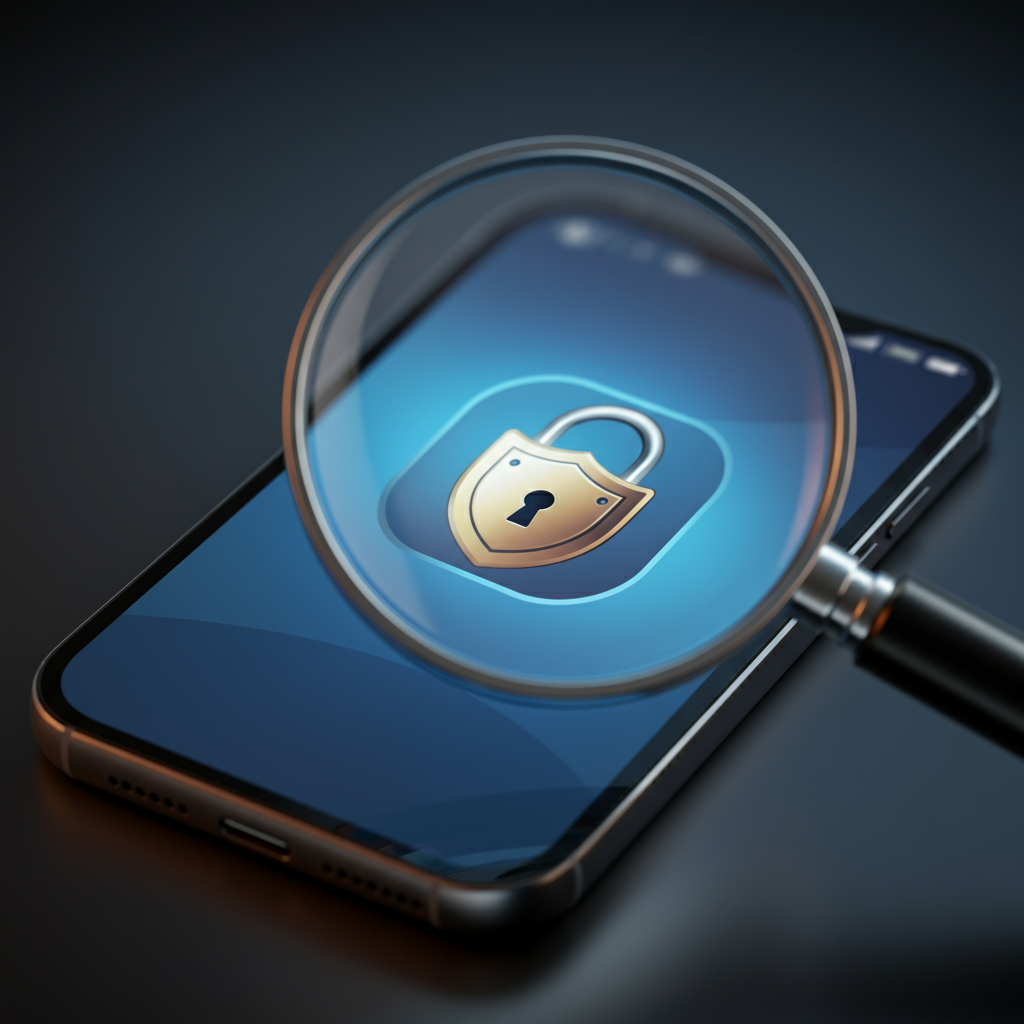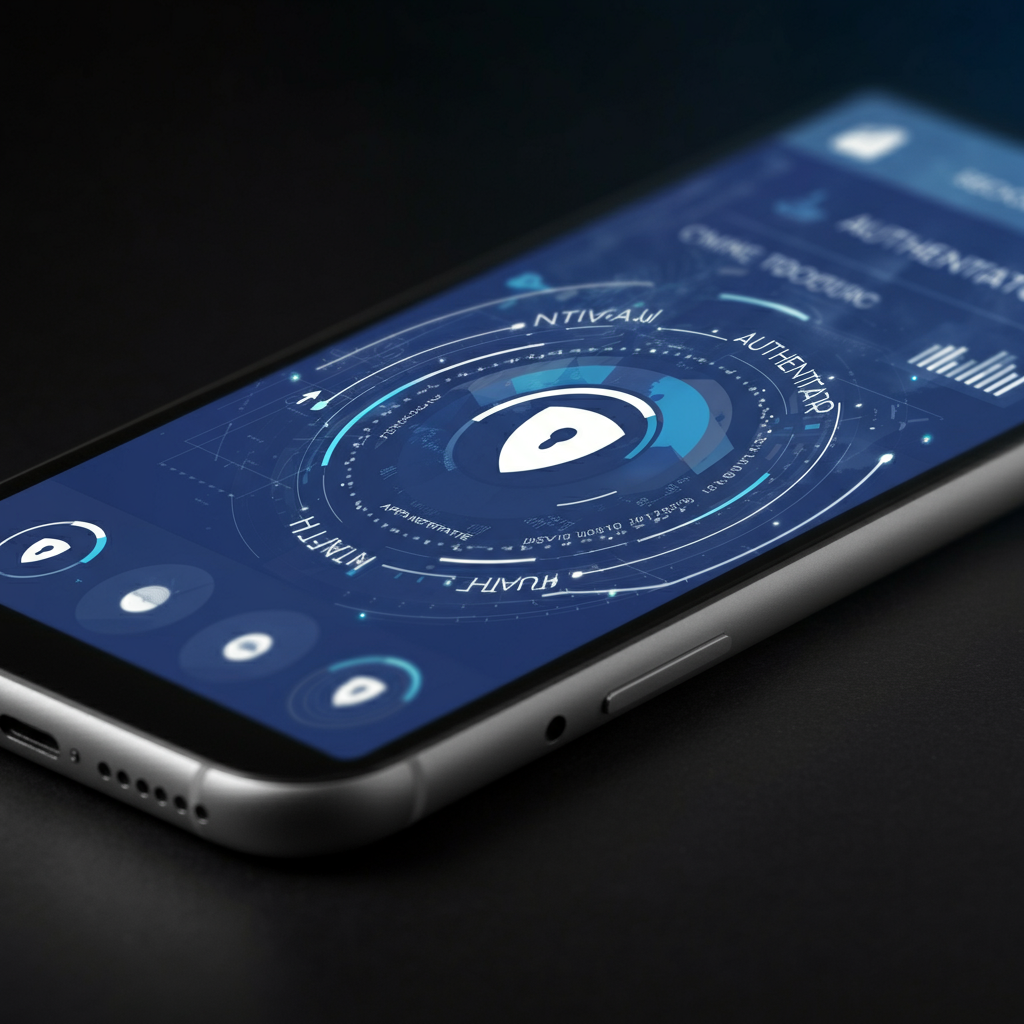With the increasing need for robust online security measures, tools like Microsoft Authenticator play a vital role in protecting users' personal information.
Yet, questions occasionally arise about whether such apps pose privacy concerns. Specifically, some users wonder, "Is Microsoft Authenticator a spyware software?"
This article will address those concerns, explore the features of Microsoft Authenticator, and discuss why it is a trustable security app rather than spyware.
What Is Microsoft Authenticator?
Microsoft Authenticator is a mobile app created by Microsoft to enhance online security through two-factor authentication (2FA) and multi-factor authentication (MFA).

With cyberattacks on the rise, this app provides an additional layer of protection by requiring users to verify their identity beyond just entering a password.
Key Features of Microsoft Authenticator
● Two-Factor Authentication (2FA): Offers an extra layer of security by requiring approval after password entry.
● Passwordless Sign-In: Enables secure logins without the need for passwords.
● One-Time Passcodes (OTP): Generates time-sensitive codes to ensure only authorized access.
● Cloud Backup: Provides secure storage for credential recovery.
Multi-Account Support: Compatible with various third-party apps and services beyond Microsoft.
These features make it a popular choice among users seeking to safeguard their digital accounts.
Understanding Spyware
Before answering whether Microsoft Authenticator could be considered spyware, let's clarify what spyware is.
What Is Spyware?
Spyware is malicious software designed to secretly collect user data, including sensitive information like passwords and browsing activity, without consent.
It typically operates unnoticed in the background and can lead to unauthorized access, identity theft, or privacy breaches.
Signs of Spyware on Devices
To identify spyware, watch out for the following:
● Decreased device performance (e.g., lags or overheating)
● Frequent pop-ups or intrusive ads
● Unknown apps running in the background
● Rapid or unexplained data usage
Now, does Microsoft Authenticator match any of these signs? Let's explore its data practices.
Is Microsoft Authenticator Spyware?
The short answer is no. Microsoft Authenticator is not spyware. Microsoft is a globally respected technology company that follows stringent privacy and security standards. Here’s how the app approaches privacy:
Data Collected by Microsoft Authenticator
Microsoft Authenticator collects only necessary information to function effectively, including:

● Device Information: Device model, operating system, and app version.
● Usage Data: How often the app is used.
● Diagnostics: Data that helps Microsoft improve performance and fix bugs.
Crucially, this data is not sold or shared with advertisers, nor is it used to track your activities. The app collects minimal information solely for security purposes to ensure a seamless user experience.
Required Permissions
To function properly, Microsoft Authenticator requires specific permissions, such as:
● Camera Access: For scanning QR codes during setup.
● Internet Access: To sync accounts and send verification codes.
● Push Notifications: For login approvals.
These permissions are typical for authentication apps and can be managed via your device’s settings.
Security Measures
Microsoft Authenticator employs robust encryption and other advanced security features to protect user data from unauthorized access. For example:
● End-to-End Encryption: Prevents third parties from intercepting sensitive information.
● Biometric Authentication: Includes fingerprint and facial recognition for additional security.
● loud Backup Encryption: Safeguards credentials stored in the cloud.
These measures ensure a high level of security, making Microsoft Authenticator a trustworthy app.
Comparing Microsoft Authenticator to Other Apps
Microsoft Authenticator vs. Google Authenticator
● Google Authenticator: Does not offer cloud backups, meaning credentials may be lost if the device is lost or damaged.
● Microsoft Authenticator: Supports secure cloud backup for easy recovery.
Microsoft Authenticator vs. Authy
● Authy: Allows multi-device support, while Microsoft Authenticator is limited to one device at a time.
● Microsoft Authenticator: Integrates more seamlessly with Microsoft accounts.
Microsoft Authenticator vs. LastPass Authenticator
● LastPass Authenticator: Includes premium features that require a subscription.
● Microsoft Authenticator: Provides all essential features for free.
By offering cloud backup and strong device security, Microsoft Authenticator stands out for users wanting added protection without extra costs.
Addressing Privacy Concerns with Microsoft Authenticator
Several myths about Microsoft Authenticator circulate online. Here’s the truth about its privacy practices:
Myth 1: Microsoft Authenticator Collects Personal Data for Advertising
False. The app only gathers minimal data required to enhance security and functionality. None of this data is sold or used for advertising purposes.
Myth 2: Microsoft Authenticator Tracks User Locations
Incorrect. The app does not require or store location data, so it cannot track users.
Myth 3: Microsoft Authenticator Can Be Hacked
While no app is 100% hack-proof, Microsoft Authenticator uses state-of-the-art encryption and security practices. However, weak passwords and phishing scams can still put accounts at risk.

Myth 4: It Works Only with Microsoft Accounts
Wrong. The app supports an array of third-party accounts, including Google, Facebook, and others.
Industry Trust
Microsoft’s market reputation and adherence to privacy regulations further solidify trust in its products. Regular security audits and compliance with GDPR and other regulations ensure the app’s credibility.
Tips for Using Microsoft Authenticator Safely
Even though the app is secure, you can take additional steps to maximize safety:
1. Enable Biometric Authentication: Use options like facial recognition or fingerprints to prevent unauthorized access.
2. Regularly Update the App: Ensure you always have the latest security patches.
3. Turn on Cloud Backup: This makes it easier to recover accounts if you lose your device.
4. Use Strong, Unique Passwords: Weak passwords are still a common point of vulnerability.
5. Be Wary of Phishing Attacks: Never approve authentication requests you didn’t initiate.
Final Verdict
Microsoft Authenticator is not spyware software. On the contrary, it is one of the most reliable tools available to enhance online security.
With robust encryption, trustworthy privacy practices, and cutting-edge features like passwordless sign-ins, it provides a valuable safeguard for your accounts.
For more information about Microsoft Authenticator and its features, you can visit Microsoft's official page here.
Whether you're protecting personal accounts or business assets, this app offers peace of mind while keeping your data safe. Don't hesitate to explore its features and strengthen your online security today.
For additional insights on security tools, check out our article on is Malwarebytes safe.
Frequently Asked Questions (FAQ)
What is Microsoft Authenticator?
Microsoft Authenticator is a mobile app designed to provide two-factor authentication (2FA) for enhanced online security.
It helps verify your identity when logging into accounts by requiring a password and an additional code or notification generated by the app.
Is Microsoft Authenticator safe to use?
Yes, Microsoft Authenticator is safe to use. It employs robust encryption methods to secure your data and prevent unauthorized access to your accounts.
The app is regularly updated with security improvements to stay ahead of potential vulnerabilities.
Does Microsoft Authenticator collect personal data?
Microsoft Authenticator collects minimal data, primarily to support its functionality. For example, it may access your device's ID or operating system details to deliver notifications.
However, it does not intrude on your personal data, messages, or files. Microsoft follows strict privacy policies to protect user information.
How does Microsoft Authenticator enhance security?
Microsoft Authenticator enhances security by adding a second layer of authentication to your logins.
Even if your password is compromised, the app's time-sensitive code or notification ensures only authorized users can access the account.
This significantly reduces the risk of unauthorized access.
Can Microsoft Authenticator be used on multiple devices?
Yes, Microsoft Authenticator can be used on multiple devices, but each device must be set up individually. You can easily transfer accounts to a new device using the app’s backup and recovery feature.
Does Microsoft Authenticator work offline?
Yes, Microsoft Authenticator can generate time-based one-time passwords (TOTP) offline for 2FA. However, some features, like push notifications, require an internet connection to function.
Is Microsoft Authenticator free?
Yes, Microsoft Authenticator is free to download and use. It does not include hidden fees or subscription costs, making it accessible for anyone looking to improve their online security.
What platforms support Microsoft Authenticator?
Microsoft Authenticator is available for iOS and Android devices, ensuring wide compatibility for most mobile users.
Can I use Microsoft Authenticator for non-Microsoft accounts?
Absolutely! Microsoft Authenticator supports accounts from many service providers, including Google, Facebook, and others, making it a versatile tool for managing multiple logins securely.
Feel free to explore the Microsoft Authenticator Support page for more details on setup and functionality.


